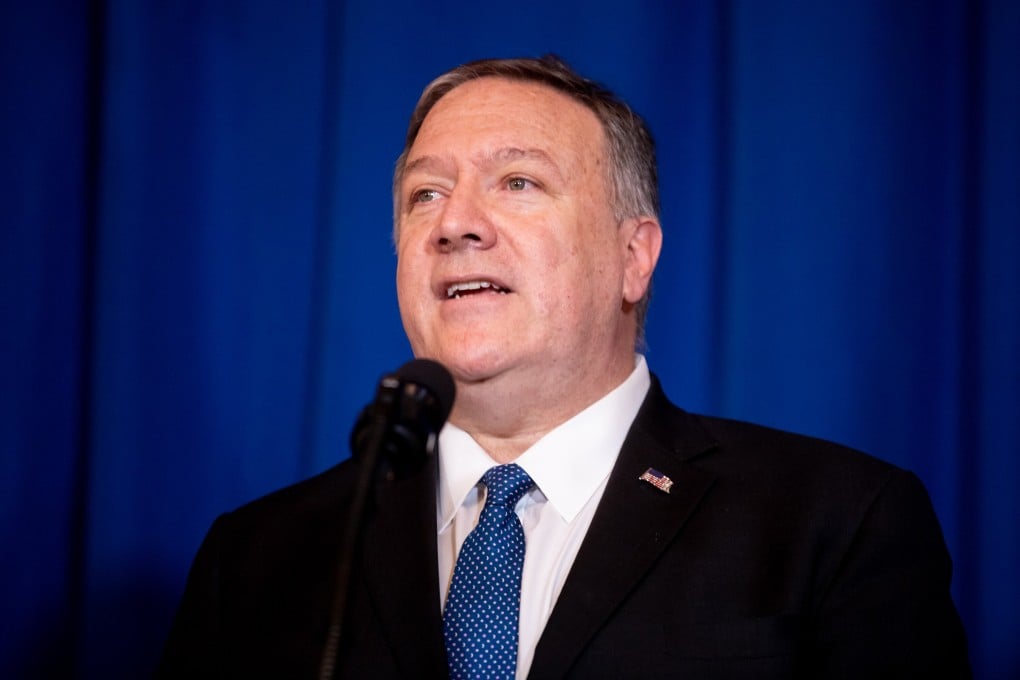US sanctions Chinese legislators for national security law on Hong Kong
- US Secretary of State Mike Pompeo cites 14 lawmakers, including Wang Chen, vice-chairman of the National People’s Congress Standing Committee
- A bill giving Hongkongers ‘temporary protected status’ in US for five years passes the House of Representatives and now heads to the Senate

US Secretary of State Mike Pompeo has announced sanctions on top officials in China’s legislature for the body’s enforcement of a controversial national security law imposed on Hong Kong.
The move is the latest in a series of measures meant to punish Beijing for what the US government sees as an erosion of the city’s autonomy, and came as a bill that would let Hongkongers live temporarily in America began to make its way through Congress.
The 14 individuals targeted by Pompeo on Monday include Wang Chen, vice-chairman of the Standing Committee of the National People’s Congress (NPC), China’s top lawmaking body; and Cao Jianming, chief prosecutor of the government’s Supreme People‘s Procuratorate.
The sanctions bar the officials from entry into the US, and are authorised by US President Donald Trump’s executive order concerning Hong Kong in July, which instituted many changes in Washington’s treatment of Hong Kong as distinct from China.

03:08
US sanctions 11 Hong Kong and mainland officials including Hong Kong’s chief executive Carrie Lam
“Beijing’s unrelenting assault against Hong Kong’s democratic processes has gutted its legislative council, rendering the body a rubber stamp devoid of meaningful opposition,” Pompeo said.